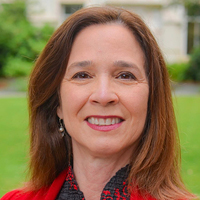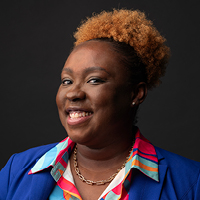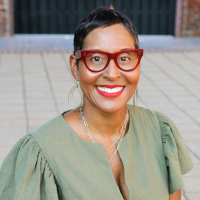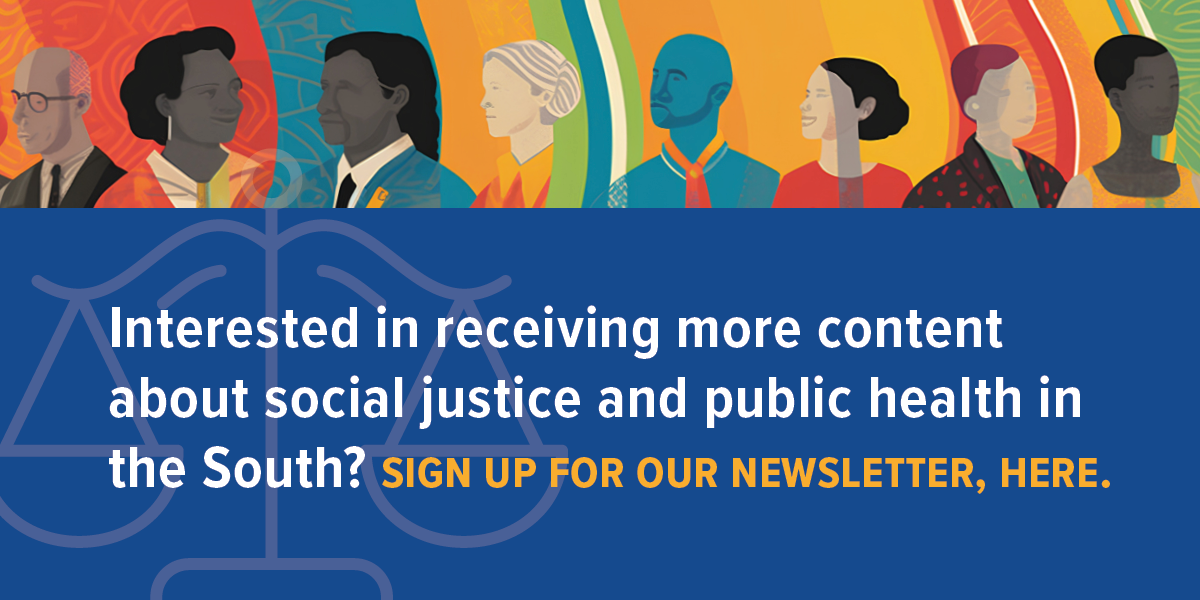A High Five
The Gilead COMPASS Initiative® celebrates five years supporting HIV/AIDS organizations in the South

This past August, the Gilead COMPASS Initiative®’s Emory University Rollins School of Public Health Coordinating Center celebrated its fifth anniversary. Rollins team members had a lot to celebrate.
To date, Emory COMPASS has aided more than 200 HIV/AIDS organizations in the southern United States. It has provided funding and capacity-building support through its PoWER Institute for organizational development efforts such as coaching, training, and technical assistance on program evaluation, grant writing, board/leadership development, organizational infrastructure, and communication. As a result, at least 75 organizations have leveraged more than $7 million in funding. What’s more, 164 Emory COMPASS partners have developed over 760 partnerships with organizations in and outside the program to strengthen HIV programming and services across the region. Emory COMPASS is now developing a networking map to show all the networks that it has created with community partners.
A purposeful initiative
COMPASS stands for COMmitment to Partnership in Addressing HIV/AIDS in Southern States. An initiative of Gilead Sciences Inc., it has committed more than $100 million to support organizations working to address the HIV/AIDS epidemic in the South.

Linelle Blais, PhD, principal investigator, Emory COMPASS

Linelle Blais, PhD, principal investigator, Emory COMPASS
“The initiative is about sustainable change and lasting impact on HIV in the southern U.S. by improving access to stigma-free care, increasing local leadership and advocacy, and changing public perception of HIV/AIDS,” says Linelle Blais, PhD, principal investigator for Emory COMPASS. “We believe that all people should have equitable access to quality health care. Yet, the southern U.S. experiences the greatest burden of HIV diagnoses, illness, and deaths in the country and lags in providing quality HIV prevention and care to its residents.”
COMPASS serves 12 states and has four coordinating centers that focus on different aspects of HIV/AIDS. The Rollins Coordinating Center supports capacity building through infrastructure development and shared knowledge. In addition, the Southern AIDS Coalition, located in Birmingham, Alabama, focuses on stigma reduction; Wake Forest University School of Divinity in Winston-Salem, N.C., leads faith-based advocacy; and the University of Houston Graduate College of Social Work concentrates on trauma-informed care, harm reduction, and mental wellness. The Rollins team serves as the lead center, overseeing all the coordinating centers’ cross-collaborative projects.

Lil Nas X visits with Grady Infectious Disease Program and COMPASS partners.
Strengthening community partners’ impact

Lil Nas X visits with Grady Infectious Disease Program and COMPASS partners.
“The unique thing about what we do is that we do not tell folks what to do. We work alongside them to help stand up their organizations so they can continue to do amazing work,” says Kia Colbert, center director for Emory COMPASS. “When this initiative is eventually over, there will still be organizations addressing HIV, but they will be stronger and able to weather through until the epidemic is over.”

Kia Colbert, center director, Emory COMPASS

Kia Colbert, center director, Emory COMPASS
Shakita B. Jones, founder and executive director of Central Alabama Alliance, Resource & Advocacy Center and an Emory COMPASS advisory board member, echoes that sentiment. “Emory COMPASS invested in us,” she says. “They believed in us. They supported us. Other funders wanted us to fold into other organizations as a program and give up on being a standalone organization because there were so many other larger organizations in the [geographic] area.”
The community partner application process is purposely kept simple and accessible with short questions. Priority is given to rural organizations with fewer available resources, those whose boards represent the population they’re serving well, and those that are led by or serve the Black MSM (men who have sex with men) community, Black women, and Latinx people—populations with the highest rates of HIV in the South.
“Emory COMPASS has invested in small organizations like Eagle Pass SAFE and has given legitimacy to the work that is being done by community members in rural areas,” says Elias Diaz, founder and executive director of an agency serving the LGBTQ+ community in Eagle Pass, Texas. “This goes beyond a monetary investment. It has been an investment in the development of our people, and that is invaluable.”
Ian L. Haddock, founder and executive director of The Normal Anomaly Initiative in Houston, concurs. “Emory COMPASS crafted us into a necessary entity that is dedicated to the forward mobility of Black queer people,” says Haddock. “Through their work, we have touched thousands of people through direct services, braver spaces, and advocacy efforts. It has not only been a space for our organization to flourish, but it also has cultivated me as a leader in this work.”

Conference attendees at the COMPASS Initiative® booth at the United States Conference on HIV/AIDS in Puerto Rico in October 2022.

Conference attendees at the COMPASS Initiative® booth at the United States Conference on HIV/AIDS in Puerto Rico in October 2022.
Looking back and moving forward
To commemorate the past five years, COMPASS is featured as a supplement issue in The Journal for the Health Care of the Poor and Underserved. The Emory team authored or coauthored six articles in the issue, which was unveiled during an anniversary celebration with community partners in Nashville, Tennessee, in August.
With many successes under its belt, the Emory COMPASS team isn’t slowing down. It’s speeding up.
“Over the next three years, we’ll focus on expanding our impact by replicating and scaling up what we know works, telling impact stories through the creative arts and other avenues that change hearts and minds, and cultivating and elevating the next generation of leaders to carry on the HIV/AIDS movement through systems and policy change,” says Blais.

Candace Meadows, director of strategic partnerships, Emory COMPASS

Candace Meadows, director of strategic partnerships, Emory COMPASS
She and her colleagues plan to address these goals using a variety of tactics, including development of practical, community-based education and mapping tools to identify service gaps and resources. For example, service desert maps that show the drive times to HIV services and service locators from communities COMPASS serves will be expanded upon. The Rollins team also has developed a learning module to help organizations gain a true picture of what the community around them looks like and needs. Additional mapping data is being gathered to inform local, state, federal, and business partners at the forefront of addressing the HIV/AIDS epidemic, particularly in the South.
The COMPASS team is also planning several events. The largest, a World AIDS Day event in Atlanta in early December, will involve the City of Atlanta, Gilead Sciences, and the Centers for Disease Control and Prevention. As part of the event, artist Sean Black will create an exhibit featuring photo journal stories and videos of community partners to showcase successful initiatives across the South.
“One of our key values is collaboration,” says Candace Meadows, director of strategic partnerships for Emory COMPASS. “Through our sustained engagement, we have seen individuals and organizations grow exponentially from where they were to where they are now. This collaboration is cyclical, as we are now seeing our more established community partners reach out and lend a hand to new ones coming into the program.”

A PoWER Up Training Session at Emory COMPASS Coordinating Center in November 2022.

A PoWER Up Training Session at Emory COMPASS Coordinating Center in November 2022.
Going above and beyond
Emory COMPASS also plans to broaden its scope through development of a coordinating center learning model. This educational tool will serve community-based organizations and governmental and nongovernmental agencies, both domestically and internationally. The model will be used to address HIV/AIDS and many other diseases.
Clearly, Emory COMPASS has legs, which is very much in line with Rollins’ core mission and values.
“Rollins is well known as a leader in public health research and as a premier educator of public health professionals,” says Blais. “One of our key differentiators is our role in implementation practice—that is, ensuring that what works through research is actually adapted and put into practice in the real world and across all populations where there is a need.”




